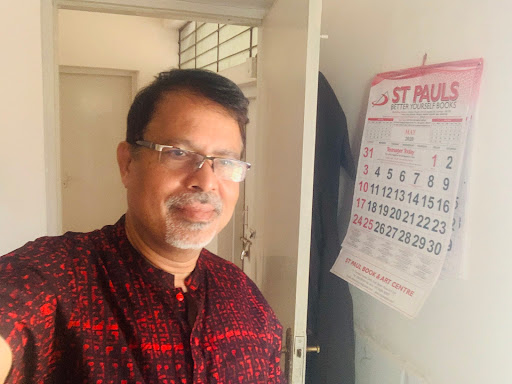The reflections are based on the various talks and discussions that took place
during CRI priests section meeting held in Kerala from 17-19th Feb
2010.
1.
Be a little more attentive to a person of
another social, cultural and linguistic group.
2.
Be careful to the emergence of sub-grouping
according to age and experience. Rather than holding them in suspicion,
integrate them into the community in a healthy manner.
3.
Try to learn a little more about the background
of the difference members of your community. Show interest in news from their
homes, their areas of origin, their areas of interest.
4.
Be willing to listen especially when the other
person is angry. Be less eager to defend yourself that to understand the real
cause of the trouble. Sift out true wisdom from a lot of emotion-charged words.
Sympathetic listening alone can have a healing power.
5.
Don’t give answers or propose solutions too
fast. There are no ready-made solutions to problems. More often people need
you, your genuine sympathy, and your non-critical attention that your
solutions. Pay attention as much to them, their mood and feelings as to what
they say. They themselves will suggest solutions.
6.
If someone else can deal with a person better
that you, seek help. We are all limited begins. It is good to seek completion
in the assistance that others can offer. Learn to combine members of your
community together in such a way that one acts as a stimulus not a block, to
the other’s genius.
7.
Do you want to be respected? Respect others. Do
you want to be important to others? Make sure that others are important to you.
Do you want others to make of you a success, lead others to success?
8.
No matter how many wonderful things you have
done, how many miracles you have worked...for that reason alone you are not
important to people. Or even if your important in that sense, your importance
is irrelevant to them. But this moment you consider them as important to you,
you become important to them, then only, and then alone, do all your
achievements, ideas and ideals become relevant to their world and important in
their understanding.
9.
Respect the autonomy of your subjects in their
own areas of competence. Consult them and value their advice.
10.
Remember; persons are more important than rules;
values are more important than their external expressions. The letter kills,
the spirit gives life. It is more purposeful to win over persons that to force
external conformity. This method may prove slower in yielding fruits, but the
results will be lasting.
11.
Never adopt undignified ways in exercising
authority, like getting information about someone else in devious ways, showing
excessive eagerness to know what someone wants to keep secret. The information
that we can gather with dignity and due respect to everyone is sufficient to
guide a community. We need not hunt out
information about others.
12.
Never be jealous of your subordinates. The
greater they are, the greater you will. Rejoice in their success and
popularity. They will in turn make you successful and popular as well.
13.
When an individual member is handling a work
different from what the rest of the community is engaged in, it is possible
that he becomes isolated and is even misunderstood. Interpret and explain his
work to the rest of the community.
14.
It is the superior who gives a public face to
the community. What you are as a superior is what people will gradually come to
think your institution is. If you are cold, unapproachable, lost in your
self-importance, petty-minded, insensitive, calculating, the image of the
entire community suffers as a consequences.

No comments:
Post a Comment